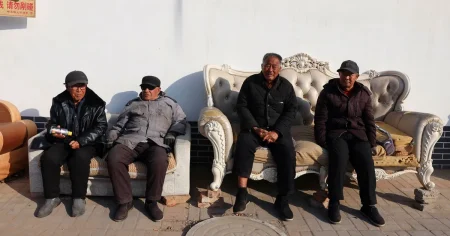Shein’s Business Practices Under Scrutiny: A Deep Dive into Allegations and Responses
A recent exposé by Dagens Nyheter (DN) has shed light on the working conditions within Shein’s supply chain, specifically in Panyu, China, a hub for many of the online retailer’s suppliers. The report paints a concerning picture of long working hours and low wages for garment workers, raising questions about Shein’s commitment to ethical and fair labor practices. This detailed examination delves into the allegations presented by DN, analyzes Shein’s responses and commitments, and explores the complexities of ensuring responsible sourcing in the fast-fashion industry.
The core of the DN report revolves around the experiences of workers within Shein’s supplier network. These accounts detail excessively long workdays, often stretching until midnight, coupled with meager compensation that barely covers basic living expenses. Such working conditions raise concerns about worker exploitation and the potential violation of international labor standards. The report’s findings highlight the human cost behind the ultra-fast fashion model, where low prices and rapid production cycles often overshadow the well-being of the individuals producing the garments.
In response to the DN report, Shein’s Head of Communications, Robin Kiely, issued a statement emphasizing the company’s dedication to ensuring safe and fair working conditions throughout its supply chain. Kiely maintains that Shein regularly audits its suppliers and adheres to international laws regarding human and labor rights. The company claims to employ agents who conduct unannounced inspections of supplier factories, scrutinizing aspects such as working hours, wages, and overall compliance with established standards. Shein asserts that it takes decisive action against suppliers found to be in violation of its code of conduct, including terminating contracts.
Shein’s response addresses the specific allegation of low wages by stating that the company pays market rates to its suppliers, enabling them to provide fair wages to their workers. The company also highlights its prompt payment practices, claiming to pay suppliers within 30 days, and in some cases, even weekly or bi-weekly. This, according to Shein, contrasts with the industry average of 90 days and allows suppliers to promptly compensate their workers. Furthermore, Shein points to its financial contributions to childcare facilities near factories in seven cities as evidence of its commitment to supporting workers and their families.
Addressing the issue of product quality and safety, Kiely emphasizes Shein’s rigorous testing procedures. The company claims to conduct daily tests to ensure its products meet international safety standards, having performed over 920,000 tests since the beginning of 2024. Shein also states that it has removed over 260 sellers from its platform this year for failing to meet its quality and safety requirements. This demonstrates, according to Shein, its commitment to providing safe and compliant products to consumers.
Despite Shein’s assurances, the DN report raises critical questions about the efficacy of the company’s monitoring and enforcement mechanisms. The documented experiences of workers suggest a disconnect between Shein’s stated policies and the realities on the ground. The complexities of global supply chains, coupled with the pressure to maintain low prices and fast turnaround times, create challenges in ensuring consistent adherence to ethical labor standards. The discrepancies between Shein’s claims and the reported working conditions underscore the need for greater transparency and more robust oversight within the fast-fashion industry. Furthermore, the reliance on third-party audits and self-reported data raises concerns about the independence and thoroughness of these assessments. The allegations presented in the DN report highlight the ongoing debate surrounding the ethical implications of fast fashion and the responsibility of brands to ensure fair labor practices throughout their supply chains. The contrasting narratives presented by the investigative report and Shein’s official response underscore the need for continued scrutiny and independent verification of working conditions within the fast-fashion industry.














